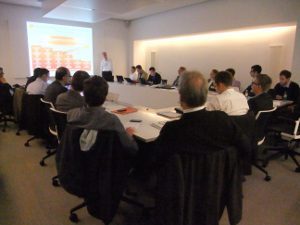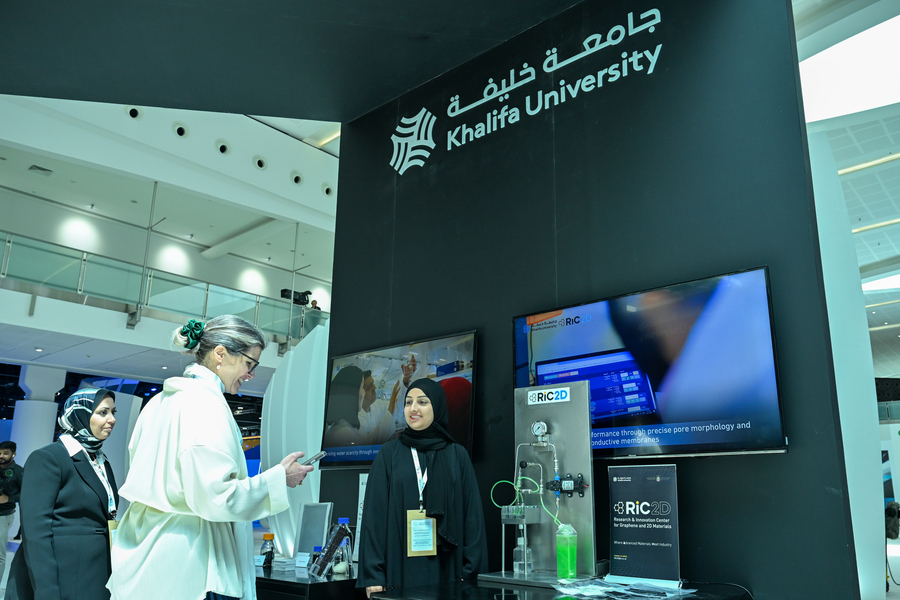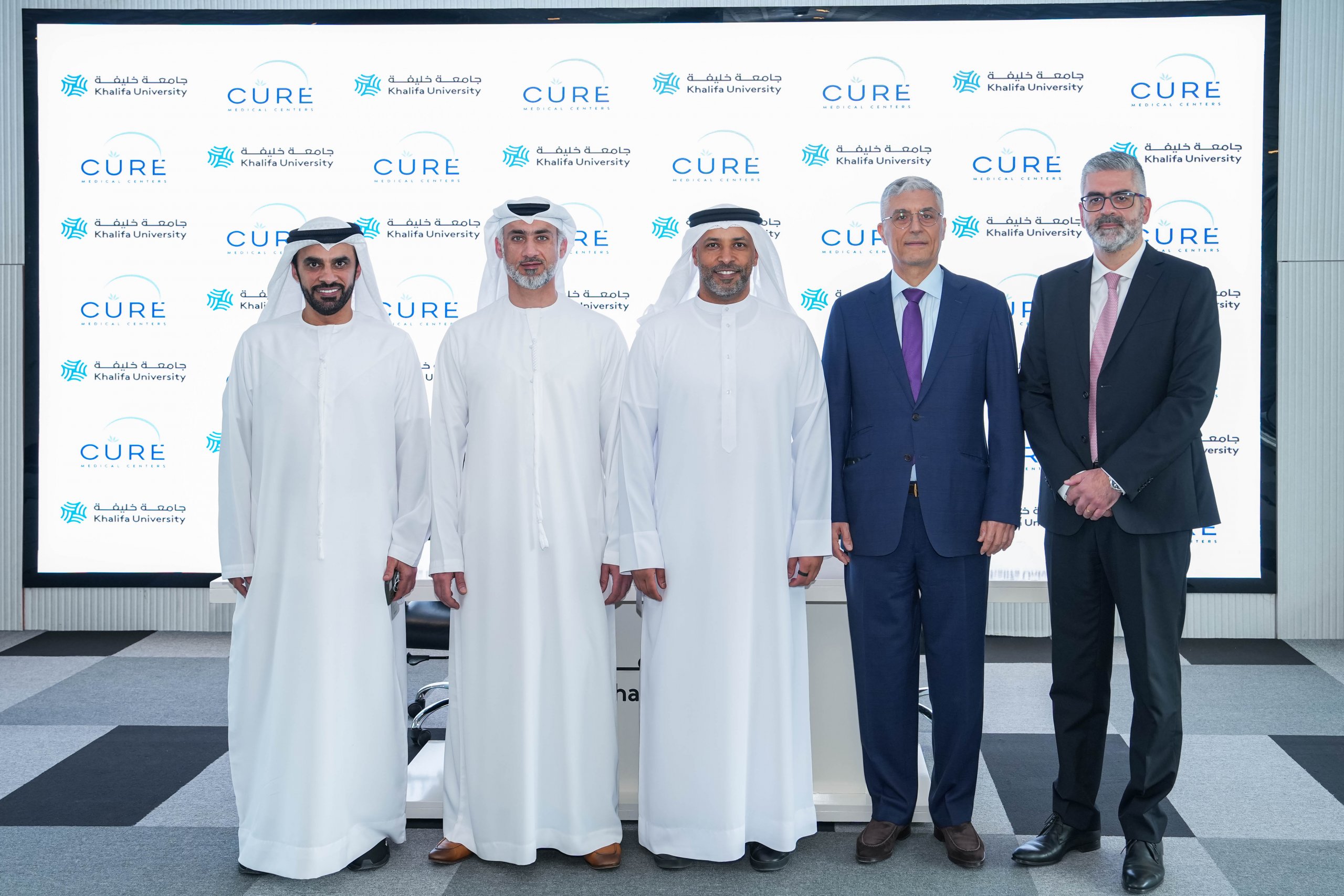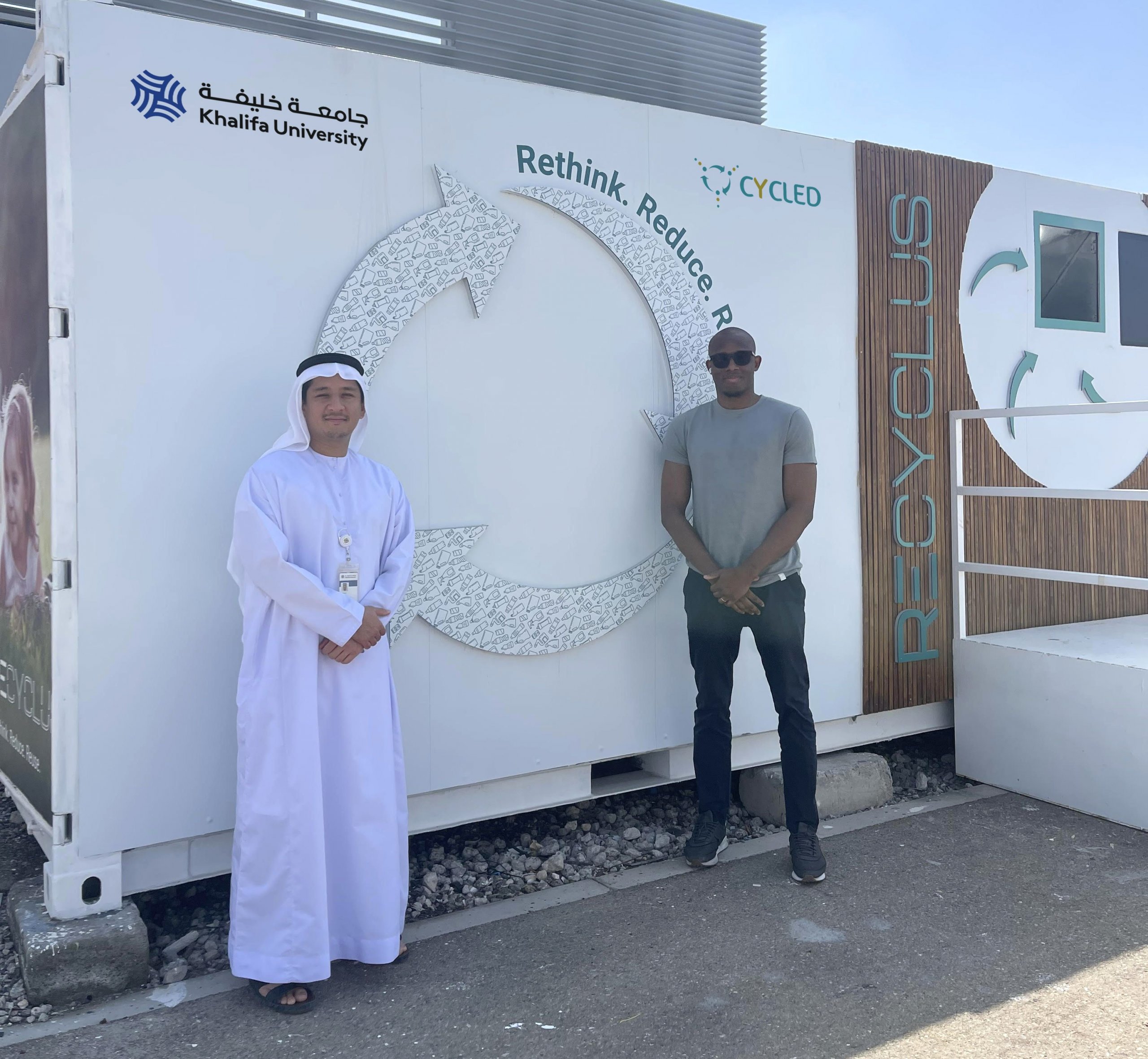Research Projects Offer Scope for Major Innovation Push with Huge Economic Potential for Microelectronics in Semiconductor Industry
Abu Dhabi-UAE: 29 September, 2013 – Masdar Institute of Science and  Technology, an independent, research-driven graduate-level university focused on advanced energy and sustainable technologies, and Technische Universität Dresden (TU Dresden) in Saxony, Germany, today announced researchers from both institutions attended a workshop in Germany to assess progress to-date on research focusing on the development of the integration of chips in three-dimensional (3D) stacks.
Technology, an independent, research-driven graduate-level university focused on advanced energy and sustainable technologies, and Technische Universität Dresden (TU Dresden) in Saxony, Germany, today announced researchers from both institutions attended a workshop in Germany to assess progress to-date on research focusing on the development of the integration of chips in three-dimensional (3D) stacks.
The research is part of the Twin Labs project, backed by the Advanced Technology Investment Company (ATIC) and Saxony.
A visit to the GlobalFoundries Material Analysis Laboratory marked the first day, which also witnessed discussions on the future of semiconductor technology. Presentations and poster sessions marked the second day of the joint workshop at TU Dresden in Germany.
Scientists of the ATIC Twin Labs are working on a 3D integration of several chips into a vertical stack – a research topic of high economic interest for the semiconductor industry as it is expected to be the next fundamental innovation push for microelectronics.
The 3D chip stacking offers one possible way of scaling up the performance of integrated circuits. Compared to the conventional 2D chips that need to be shrunk in size to pack as much as possible into a single layer, 3D chip stacking means thinning the chips and stacking them on top of each other to produce high-speed and multifunctional systems. A properly designed 3D stacked system can use as much as 70 per cent less power than a conventional chip while increasing the communication bandwidth among the chips.
Dr. Fred Moavenzadeh, President, Masdar Institute, said: “The ATIC Twin Labs project marks an important collaboration that has progressed well on both sides. The bi-annual meeting of researchers from Masdar Institute and TU Dresden ensures each side is informed of the progress, while charting future course of action. With the support of the UAE leadership, the collaboration has paved the way for inventions in computing technologies of the future. We hope the ATIC Twin Labs project will lead to true breakthrough innovations, bringing benefits to all stakeholders in the advancing semiconductor industry.”
Researchers from Abu Dhabi led by Dr. Ibrahim Elfadel, Professor of Microsystems Engineering at Masdar Institute, focus on ‘Three-dimensional integrated microelectronics for minimum energy design’ applied to a variety of design contexts like computing, communication, storage and sensing. The Saxon side of the ATIC Twin Labs works on the ‘3-D Chip Stack Intraconnects (3DCSI)’ project, which focuses on the three-dimensional integration of several chips into a vertical stack and the connection technology needed for the communication between different chip layers.
Dr. Gerhard Fettweis, Professor and Head of the Vodafone Chair Mobile Communications Systems at TU Dresden is one of the founders of the Twin Labs.
Dr Fettweis said: “As one of the first jointly established research projects of its kind, the ATIC Twin Labs has had a successful first phase. Researchers from both sides are working in partnership and closely together to establish a role model for other ATIC Twin Labs projects. As a first result, the two research institutions have developed simulation techniques and prototyping concepts, which build the basis for further development and optimization of highly efficient 3-D chip-stack intraconnects.”
Dr. Elfadel said: “The progress we have made so far has been actually in stacking. Our projects focus on advanced device, circuits, photonics and circuit design. Some of the progresses so far were presented at the International Conference on Design and Technology of Integrated System that was held from 26-28 March 2013 in Abu Dhabi. The Abu Dhabi side is focusing more on the energy efficiency side – reducing power consumption, and the TU Dresden is focusing on the interconnecting technology – exploring the advantages of 3-D integration. We aim to achieve more and are keen to publish the outcome in peer-reviewed journals in the coming months.”
Serving as a key pillar of innovation and human capital, Masdar Institute remains fundamental to Masdar’s core objectives of developing Abu Dhabi’s knowledge economy and finding solutions to humanity’s toughest challenges such as climate change.
Established as an on-going collaboration with the Massachusetts Institute of Technology (MIT), Masdar Institute integrates theory and practice to incubate a culture of innovation and entrepreneurship, working to develop the critical thinkers and leaders of tomorrow. With its world-class faculty and top-tier students, the Institute is committed to finding solutions to the challenges of clean energy and climate change through education and research.






